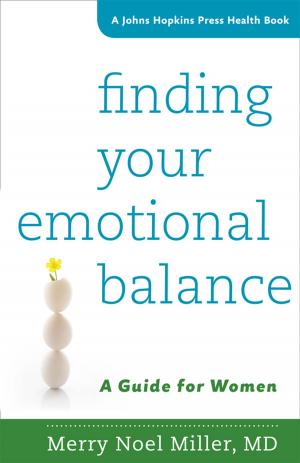The Johns Hopkins Guide to Psychological First Aid
Nonfiction, Health & Well Being, Psychology, Mental Illness, Medical, Reference, Public Health| Author: | George S. Everly Jr., Jeffrey M. Lating | ISBN: | 9781421422725 |
| Publisher: | Johns Hopkins University Press | Publication: | April 1, 2017 |
| Imprint: | Language: | English |
| Author: | George S. Everly Jr., Jeffrey M. Lating |
| ISBN: | 9781421422725 |
| Publisher: | Johns Hopkins University Press |
| Publication: | April 1, 2017 |
| Imprint: | |
| Language: | English |
Psychological first aid, or PFA, is designed to mitigate the effects of acute stress and trauma and assist those in crisis to cope effectively with adversity. PFA is designed to be applied in emergencies, including disasters and terrorist attacks. In this essential guide, George S. Everly, Jr., developer of the Johns Hopkins RAPID PFA method, and Jeffrey M. Lating, his collaborator in its implementation, describe the principles and practices underpinning this psychological model in an easy-to-follow, prescriptive, and practical manner. They explain the history of PFA and persuasively demonstrate its powerful versatility. Mental health practitioners can apply PFA in all settings. It can also be used as a public-health tool to address mental health needs following critical incidents and as a means for building community resilience.
Aimed at mental health practitioners, all first responders, and global health disaster teams such as Médecins Sans Frontières and the World Health Organization, The Johns Hopkins Guide to Psychological First Aid is the first book to thoroughly explain RAPID PFA. RAPID, a unique theoretically grounded and evidence-based PFA method, follows a set of easily understood principles. In each chapter, Everly and Lating provide a step-by-step approach and include a key point summary to emphasize essential elements. A unifying case exemplifies each phase of the RAPID PFA model in an ongoing dialogue that presents ideal PFA responses, examples of common mistakes, and various outcomes.
In addition to their counseling experience in Kuwait after the Gulf War and in New York City after the September 11 attacks, the authors have traveled nationally and internationally to teach the RAPID PFA method in numerous public health, fire, police, military, and faith-based settings. Beneficial to those with little or no previous mental health training, this book is an essential tool for people who want to learn, to practice, or to retain their ability to use psychological first aid effectively.
Psychological first aid, or PFA, is designed to mitigate the effects of acute stress and trauma and assist those in crisis to cope effectively with adversity. PFA is designed to be applied in emergencies, including disasters and terrorist attacks. In this essential guide, George S. Everly, Jr., developer of the Johns Hopkins RAPID PFA method, and Jeffrey M. Lating, his collaborator in its implementation, describe the principles and practices underpinning this psychological model in an easy-to-follow, prescriptive, and practical manner. They explain the history of PFA and persuasively demonstrate its powerful versatility. Mental health practitioners can apply PFA in all settings. It can also be used as a public-health tool to address mental health needs following critical incidents and as a means for building community resilience.
Aimed at mental health practitioners, all first responders, and global health disaster teams such as Médecins Sans Frontières and the World Health Organization, The Johns Hopkins Guide to Psychological First Aid is the first book to thoroughly explain RAPID PFA. RAPID, a unique theoretically grounded and evidence-based PFA method, follows a set of easily understood principles. In each chapter, Everly and Lating provide a step-by-step approach and include a key point summary to emphasize essential elements. A unifying case exemplifies each phase of the RAPID PFA model in an ongoing dialogue that presents ideal PFA responses, examples of common mistakes, and various outcomes.
In addition to their counseling experience in Kuwait after the Gulf War and in New York City after the September 11 attacks, the authors have traveled nationally and internationally to teach the RAPID PFA method in numerous public health, fire, police, military, and faith-based settings. Beneficial to those with little or no previous mental health training, this book is an essential tool for people who want to learn, to practice, or to retain their ability to use psychological first aid effectively.















